In this era of rapid change, it’s crucial to understand the impact of economic systems on our daily lives. As technology advances, we see new opportunities for innovation in financial services, from cryptocurrencies to artificial intelligence-driven investment strategies. Technology, too, plays a significant role in the development of smarter healthcare solutions. Additionally, advancements in artificial intelligence are contributing to better decision-making and enhanced cognitive functions across various industries. With all these exciting developments, the intersection of finance, technology, intelligence, and health promises to transform the future of humanity.
Finance and Technology: A New Era of Digital Transformation
The world of finance has been undergoing a major transformation due to the advent of digital technologies. Over the past decade, technology have reshaped the landscape of financial services, creating new opportunities for growth and enhancing efficiency. One of the most notable innovations is the rise of cryptocurrencies, which have revolutionized how we view money and value. Bitcoin, Ethereum, and other digital currencies have gained tremendous popularity as a means of exchange, offering financial independence that challenge traditional banking methods.
Moreover, financial technology, or fintech, has led to a surge in digital payment platforms, peer-to-peer lending, and online investment tools. These innovations allow individuals to access a broader range of financial services and manage their money more effectively. The use of artificial intelligence and machine learning in finance is also growing, with algorithms now being used to analyze market trends, assess risks, and make data-driven investment decisions. This makes the financial system more efficient, while also offering personalized services to clients.
However, the integration of technology into finance also presents challenges. One of the key concerns is the security of digital transactions. With more people relying on digital platforms for their financial activities, cybersecurity becomes an even greater priority. Fraud prevention, identity protection, and data privacy are critical areas that need attention to ensure that the benefits of fintech are fully realized.
Artificial Intelligence: Enhancing Intelligence and Decision-Making
Artificial intelligence (AI) is undoubtedly one of the most transformative technologies of the 21st century. Its applications are wide-ranging, from improving decision-making processes to revolutionizing healthcare and education. In finance, AI-driven tools are enabling traders and investors to make smarter, more informed choices, minimizing human error and maximizing profitability. These tools can analyze vast amounts of data in seconds, making it possible to predict market trends with remarkable accuracy.
Beyond finance, AI is making a profound impact on human intelligence and cognitive function. From voice assistants like Siri and Alexa to advanced neural networks used in machine learning, AI is improving our daily lives by offering personalized solutions and enhancing our ability to process information. In healthcare, AI is being used to analyze medical records, diagnose diseases, and even develop new drugs and therapies. By utilizing AI to perform complex tasks, professionals can enhance diagnostic accuracy, leading to better health management.
Furthermore, AI is playing a critical role in education by providing personalized learning experiences. Through the use of intelligent tutoring systems, AI can assess a student’s needs and tailor lessons to match their learning pace. This can help bridge educational gaps and give students the tools they need to succeed in an increasingly competitive world.
Health: Technology and Intelligence Shaping the Future of Medicine
The field of healthcare is experiencing its own revolution, thanks to advancements in both technology and artificial intelligence. In recent years, we have seen significant strides in telemedicine, wearable health devices, and personalized medicine. These technologies are making healthcare more accessible and efficient, particularly in remote areas where medical professionals may be scarce. Telemedicine allows patients to consult with doctors virtually, eliminating geographical barriers and reducing the need for in-person visits.
Wearable devices, such as fitness trackers and smartwatches, are empowering individuals to take control of their health by providing real-time data about their physical activity, heart rate, sleep patterns, and more. This data can be shared with healthcare providers, enabling better monitoring and more proactive care. Additionally, wearable technology is helping in the early detection of diseases, such as heart conditions or diabetes, allowing for early intervention and treatment.
Artificial intelligence is also playing a significant role in advancing medical research. Machine learning algorithms are being used to analyze large datasets of medical information, which can lead to the identification of new treatment options and improve the efficiency of clinical trials. AI-powered systems are also helping doctors and healthcare professionals in diagnosing diseases with greater accuracy and speed, reducing the margin of error in critical situations.
Personalized medicine is another exciting development in healthcare. By using genetic information, doctors can now tailor treatments to an individual’s specific genetic makeup, ensuring more effective and targeted therapies. This is particularly important for complex diseases like cancer, where personalized treatments can dramatically improve outcomes.
The Interconnection of Finance, Technology, Intelligence, and Health
As technology continues to evolve, the interconnection between finance, technology, intelligence, and health becomes even more pronounced. These fields are not isolated; rather, they are deeply interconnected, with each one influencing the development and progress of the others. For example, the financial success of tech companies often drives the development of new healthcare technologies, while advancements in artificial intelligence are improving the ways we manage both our finances and our health.
Moreover, as more individuals invest in health-related technologies and services, the demand for financial solutions tailored to the healthcare industry is increasing. The rise of digital health startups is creating new investment opportunities, and investors are keen to capitalize on the growth of the health-tech sector. In turn, this investment helps fund the development of groundbreaking healthcare innovations that benefit society.
Additionally, the use of AI in finance and healthcare is becoming more integrated. For instance, AI can help individuals manage their finances by offering personalized budgeting advice, while it also plays a role in detecting and preventing healthcare fraud. The convergence of these fields presents exciting possibilities for the future, creating opportunities for individuals and businesses to thrive in a more connected world.
Conclusion
In conclusion, the future of finance, technology, intelligence, and health is incredibly promising. As medali777 slot continue to evolve and intersect, they offer vast opportunities for innovation, improvement, and growth. The integration of technology into financial services and healthcare is making these industries more accessible, efficient, and personalized, while artificial intelligence is enhancing our ability to make smarter decisions in all areas of life. As we move forward, it is clear that the convergence of these domains will have a profound impact on our world, improving the quality of life for individuals and communities alike.
- Home
- In the ever-changing world of finance, technology, intelligence, and health, significant progress have been made in recent years. These four domains are closely intertwined, each one shaping the others in ways that are not only transforming industries but also improving the lives of people globally. This article explores how these fields are evolving and how they are paving the way for a brighter, more interconnected future.
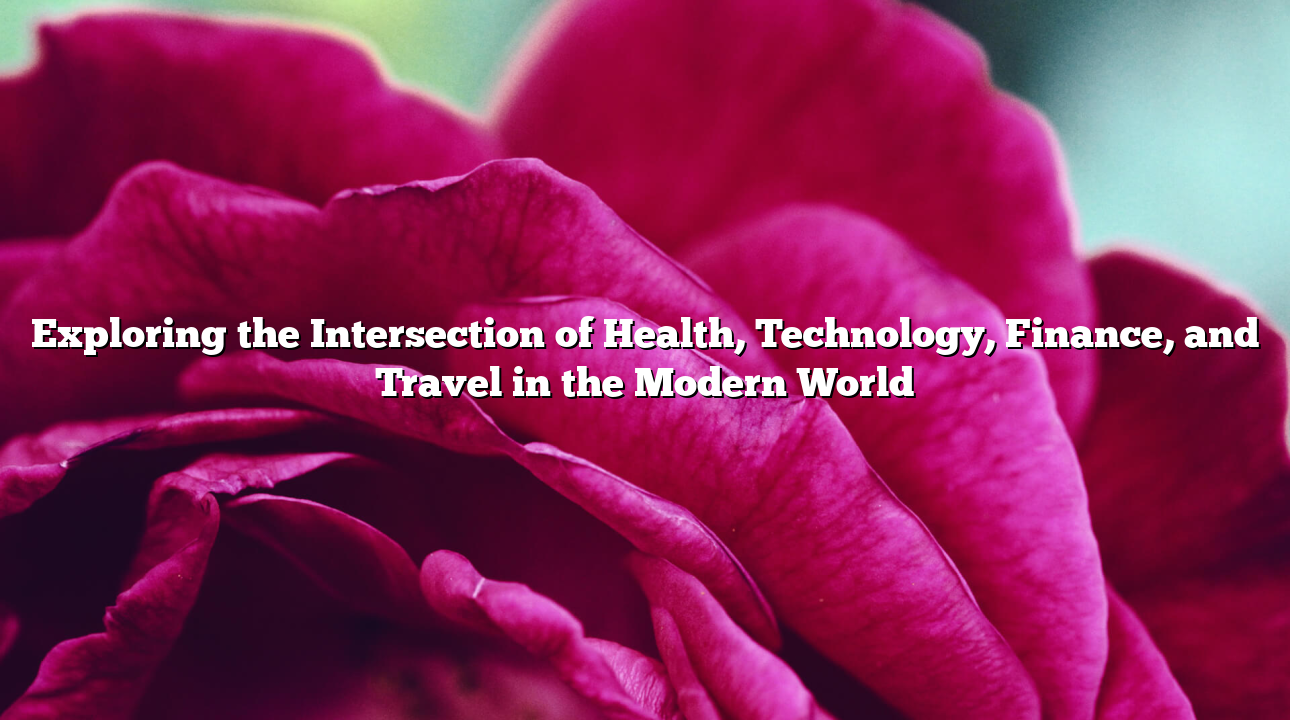
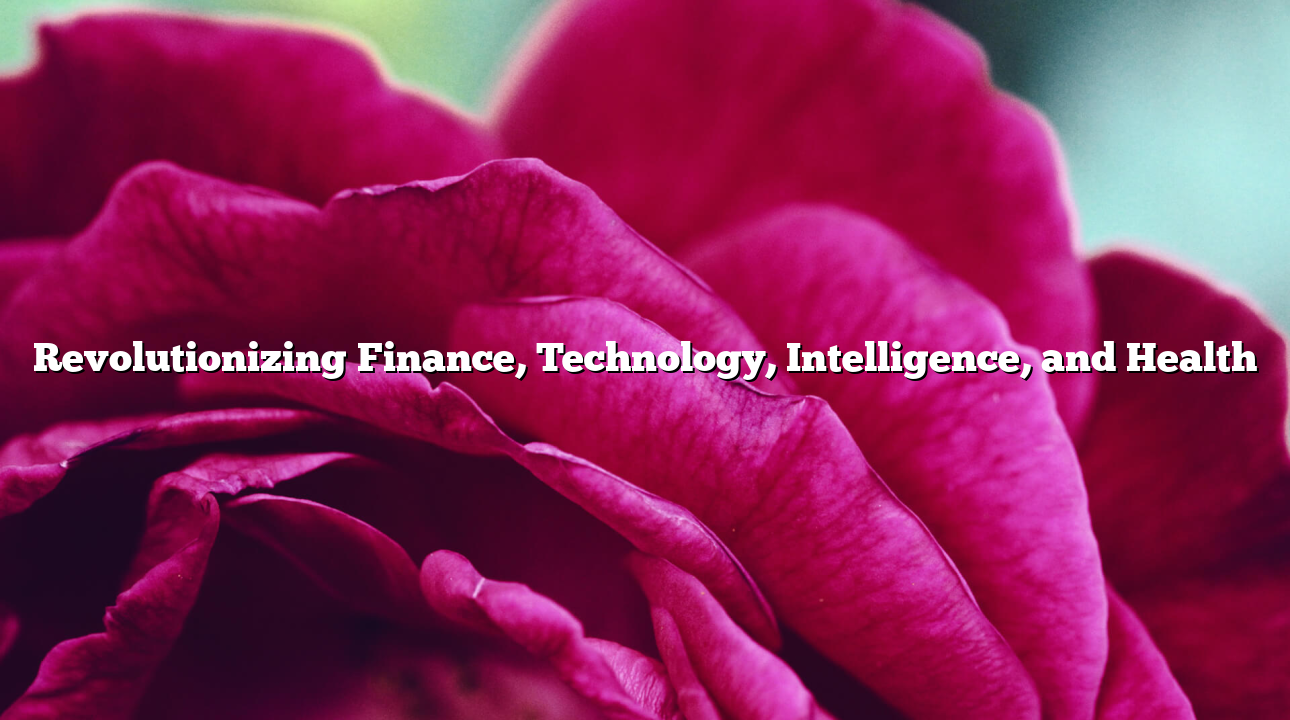

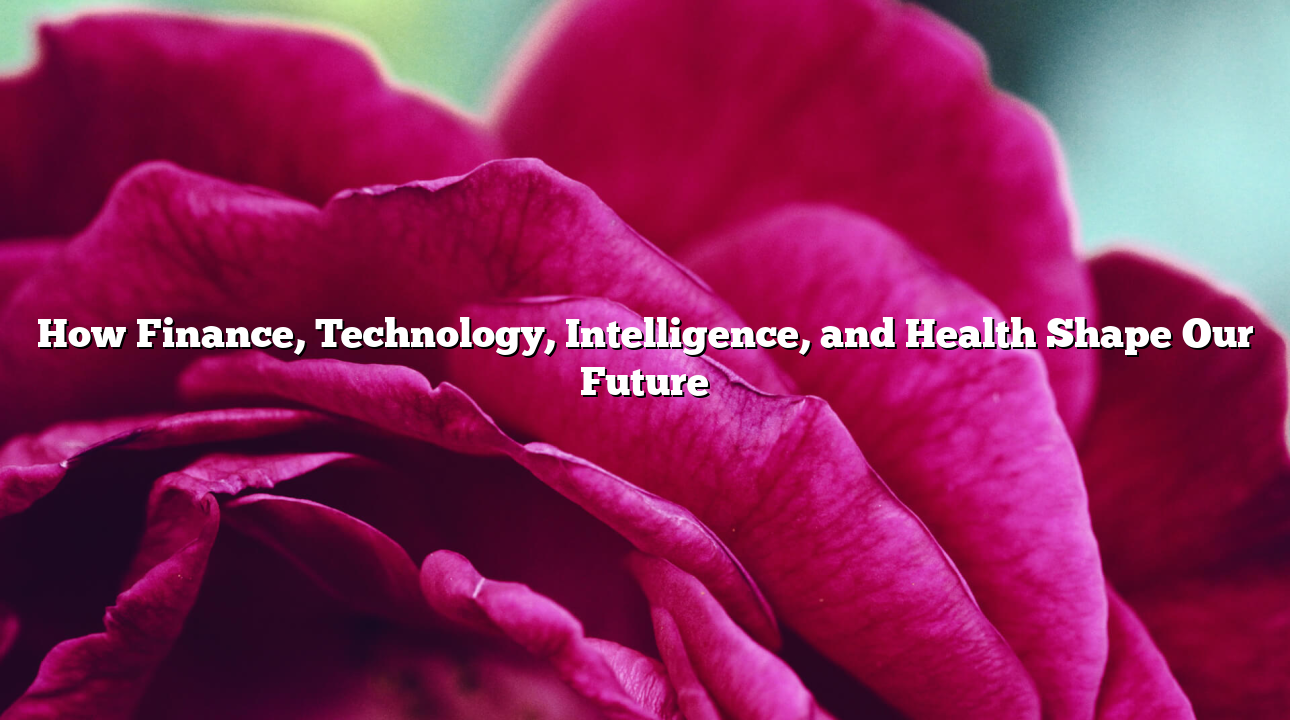
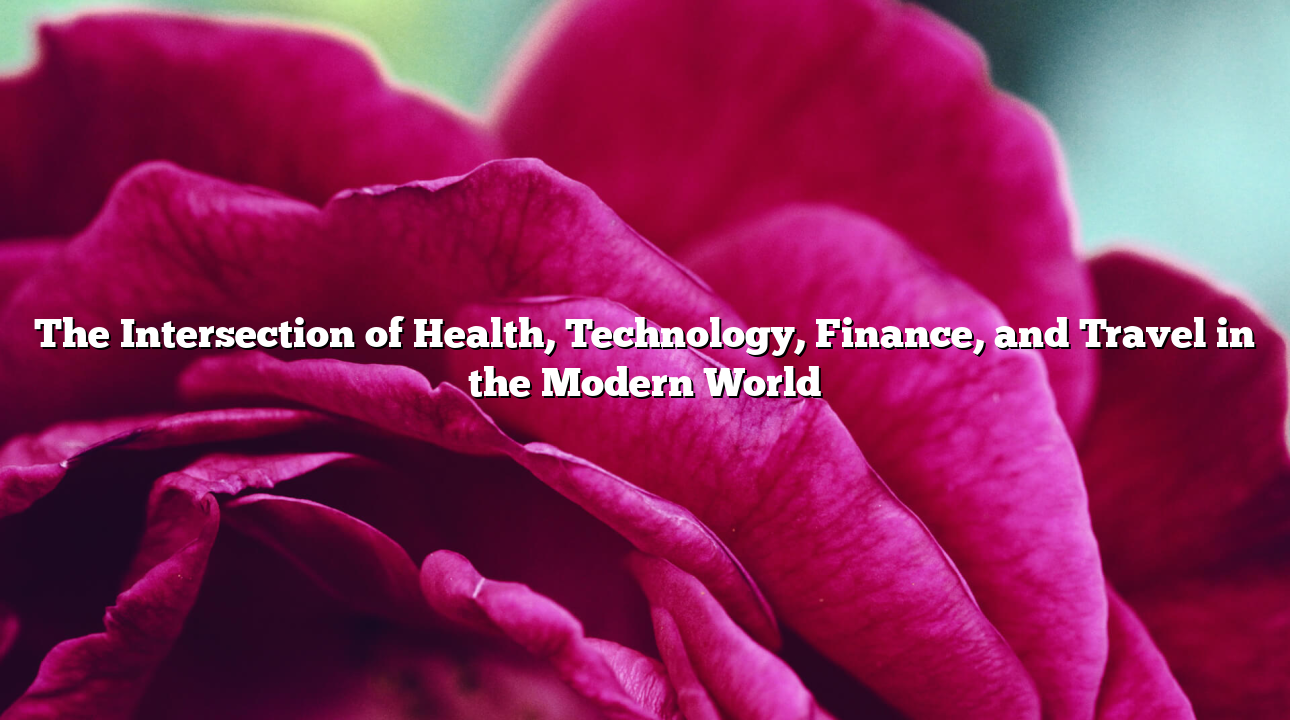
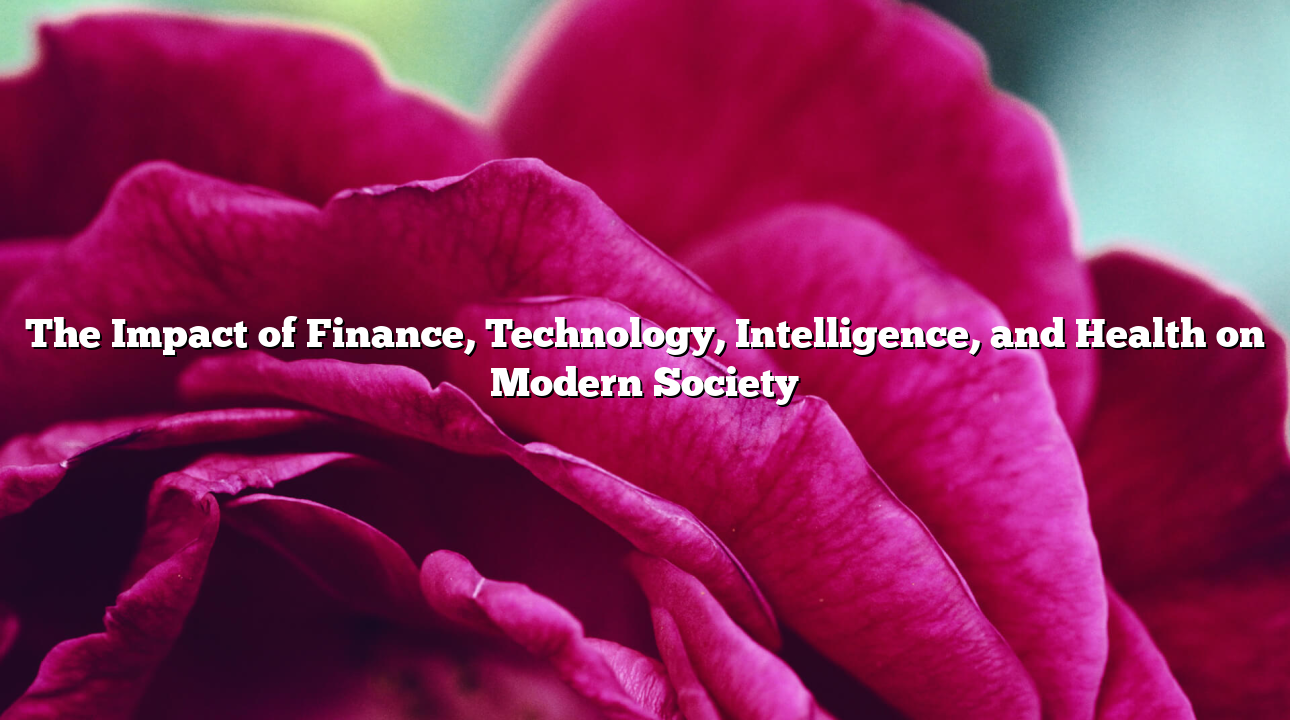
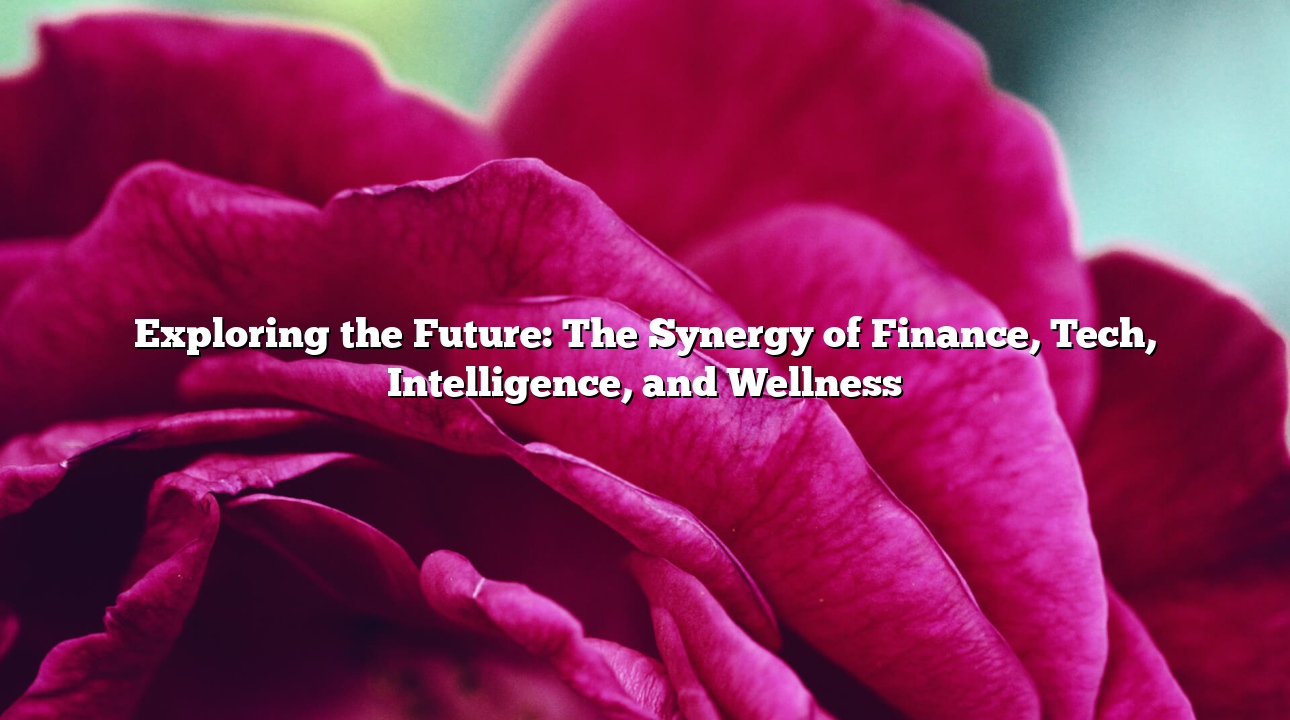



Leave a Reply